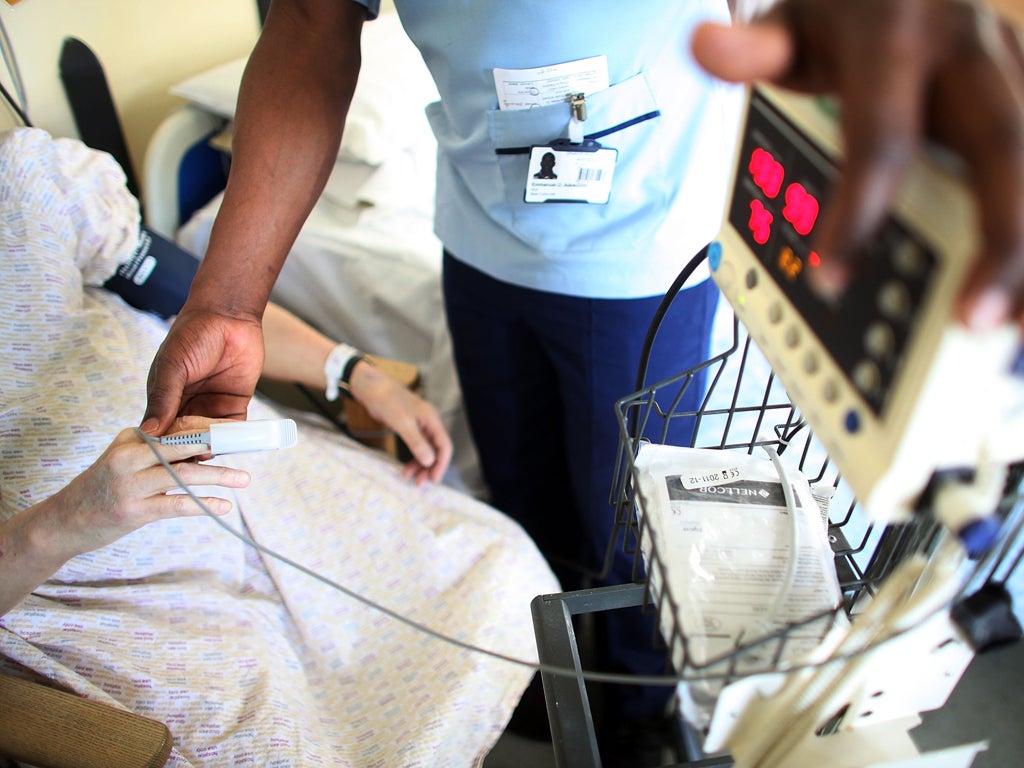Fraud by staff and patients costs NHS '£3bn a year'
Lives put at risk by financial losses, says report

Your support helps us to tell the story
From reproductive rights to climate change to Big Tech, The Independent is on the ground when the story is developing. Whether it's investigating the financials of Elon Musk's pro-Trump PAC or producing our latest documentary, 'The A Word', which shines a light on the American women fighting for reproductive rights, we know how important it is to parse out the facts from the messaging.
At such a critical moment in US history, we need reporters on the ground. Your donation allows us to keep sending journalists to speak to both sides of the story.
The Independent is trusted by Americans across the entire political spectrum. And unlike many other quality news outlets, we choose not to lock Americans out of our reporting and analysis with paywalls. We believe quality journalism should be available to everyone, paid for by those who can afford it.
Your support makes all the difference.The true cost of fraud to the NHS is more than £3bn a year, putting patients' lives at risk, according to a new report. The staggering figure – enough to build dozens of new hospitals – is the work of a "dishonest minority" of doctors, staff, patients and contractors, the report, to be published tomorrow, says.
Scams costing the NHS billions each year range from people creating fake invoices, stealing money from bank accounts, faking timesheets for work not done to not paying for prescriptions. The losses have a "serious effect on the quality of patient care", The Financial Cost of Healthcare Fraud report warns.
Jim Gee, of the accountancy firm PKF, and one of the report's authors, said: "The greatest proportion of the loss is high-volume, low-value fraud – prescription charges not being paid, for instance, equipment that disappears, or professionals claiming for an extra bit of treatment which perhaps they haven't provided."
Despite making progress in tackling the problem – the £3bn figure is around 3 per cent of the NHS budget, down from 5 per cent in 1998 – Mr Gee warns that greater transparency is needed to curb fraud further.
Mr Gee, who ran the NHS Counter Fraud Service between 1998 and 2006, said: "The Government should put the information into the public domain. How can you track whether you are being successful at tackling fraud unless you measure what the losses are? And how can you put in place the right solution if you don't know what the problem is?"
A Department of Health spokesman contested the huge fraud losses. "While we do not recognise the figures quoted in this report, any suspicions of fraud or corruption in the NHS can be reported to NHS Protect on their confidential fraud and corruption reporting line," he said.
The value of "fraud and unlawful action" identified by the NHS in 2010/11 – a year in which 105 criminal cases were successfully prosecuted – was £10,969,386.
More action is needed, said Julia Manning, chief executive of 2020health, a health and technology think tank: "If NHS management takes tackling fraud more seriously they will not only ensure taxpayers' money is spent appropriately but find a significant source of savings to fund the growing demands that the NHS is facing."
The report, written by PKF and Portsmouth University, reveals how the cost of fraud to the NHS is part of a wider picture of criminality, with an estimated 7.29 per cent of healthcare expenditure lost to fraud globally – amounting to £230bn a year, according to the report's analysis of more than £1trn spent between 1998 and 2009.